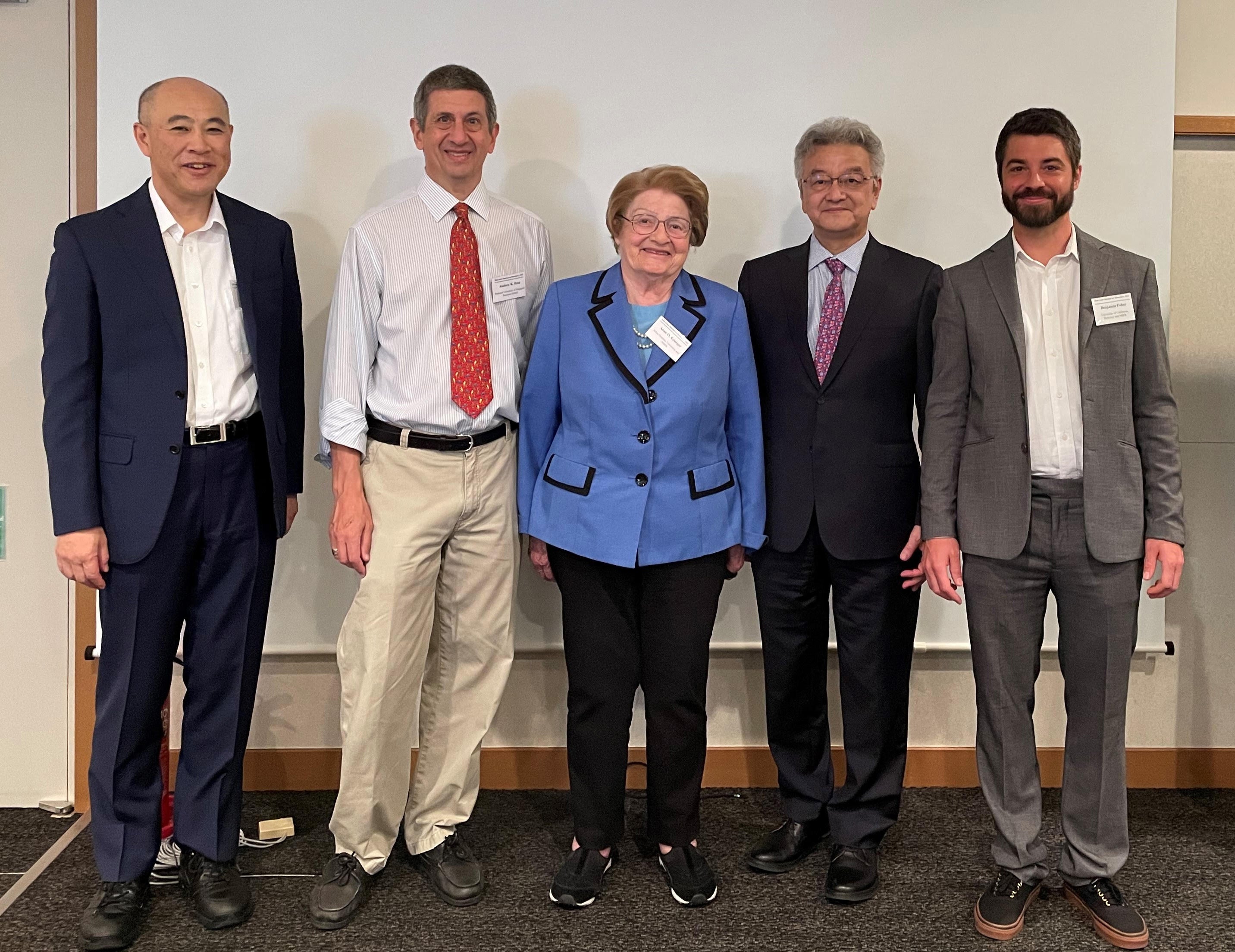The East Asian Seminar on Economics, 1990–2023

The East Asian Seminar on Economics (EASE) was launched in 1990 to promote academic exchange between North America–based economists, particularly those who are not experts on East Asia, and economists in East and Southeast Asia. The annual EASE conference has become a premier venue for analysis of economic issues that affect East Asia. The EASE is one of the NBER’s long-running international outreach activities, along with the International Seminar on Macroeconomics and the Trans-Atlantic Public Economics Seminar in Europe, and annual conferences in India, Japan, and China.
The EASE conferences were focused on topics in international trade and finance in the early years, but over time expanded to also include monetary and fiscal policy and financial crises. Growth also has been a recurring theme. Some structural issues, such as inequality, housing, and demography, have also been highlighted. Table 1, on pages 22–23, shows the complete list of meetings, topics, locations, and organizers for the full history of EASE meetings.
The first EASE conference was hosted by the Korea Development Institute in Seoul in June 1990. The topic was “The Political Economy of Tax Reform.” Takatoshi Ito of Columbia University (then Hitotsubashi University) and Anne O. Krueger of Johns Hopkins University (then Duke University) were co-organizers. They assembled a consortium of three research institutes in the East Asian region. Each institute took its turn hosting the conference, and all of the institutes sent researchers to present papers at the conference each year. In a typical year, the meeting attracted three or four NBER researchers, mostly as paper presenters. The second EASE meeting, on “Trade and Protectionism,” was hosted by the Chung-Hua Institution for Economic Research in Taipei. The third was in Sapporo, Japan, hosted by the Tokyo Center for Economic Research. The topic was “Macroeconomic Linkage: Savings, Exchange Rates, and Capital Flows.” The NBER hosted the fourth meeting in San Francisco on “Growth Theories in Light of the East Asian Experience.”
The San Francisco meeting concluded the first cycle. As the second cycle began, several additional research institutes, universities, and central banks joined the EASE rotation. Some stayed permanently, while others participated for a shorter period. The Australian National University, National University of Singapore, and Hong Kong University of Science and Technology became permanent members over the years. Two Chinese universities, Tsinghua University and Beijing University, participated at various times. EASE has met in Bangkok, Manila, and Wellington, even though no institution from Thailand, the Philippines, or New Zealand is a formal EASE affiliate. The two EASE organizers and the local host choose the topic for each conference. The selection has been guided by current topics in which interest was high and research was ongoing in member countries and the global economics community.
EASE meetings have provided important opportunities for international scholarly exchange. Some NBER participants were visiting Asia for the first time when they attended a conference. Each conference participant from the NBER presents a paper, and discusses a paper. Beyond this formal structure, however, many of the gains to participating scholars have come from informal chats on recent developments in methods, theory, and data. These benefits have been invaluable to the participants. This is a clear case of gains from trade: the NBER authors learn from their Asian colleagues, and vice versa.
We believe that the collaboration between NBER economists and economists from first-rate institutions in East Asia has raised the quality of empirical research in Asia. When EASE began, rigorous empirical work in the NBER tradition was rare in East Asia. Today, it is much more of a standard.
EASE meetings 1 through 20 resulted in conference volumes published by the University of Chicago Press. Ito and Krueger co-edited EASE volumes 1 through 12. Andrew Rose of the University of California, Berkeley replaced Krueger when she became the First Deputy Managing Director of the IMF. Ito and Rose co-edited EASE volumes 13 through 20.
Beginning with the EASE 32 meeting, the organizers will be Benjamin Faber of the University of California, Berkeley, and Takeo Hoshi of the University of Tokyo. When EASE 31 met in Tokyo in June 2023, all five current, past, and future EASE organizers were present. They celebrated the success of this long-running meeting series, and looked forward to EASE 32, which will take place in Hong Kong and focus on “Global Shocks and Policy Responses.”


